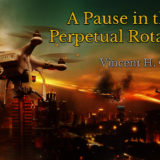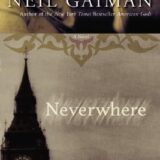This is going to be a short one.
YES!
This was prompted by a Facebook post in one of the more popular SF groups.
It started out as a discussion, asking the question “is getting the science right important in science fiction?”. An unreasonable question to begin with as the default ought to be “of course!”, but then it hit a few responses that seemed to suggest that not only was the science unnecessary to science fiction, it was a potential drag on the story.
Buh wuh?
You know that top of your head caving in feeling you get during the worst moments of cognitive dissonance you’ve ever encountered? Yeah, like that.
A brief historical reminder: when SF fandom began, it started out as science clubs conducted via correspondence and local meetings; Hugo tried to sell them all build-your-own-radio kits. Several early fans almost blew up their neighborhoods (one of which was Brooklyn) with their rocketry experiments. Over the course of several years, the clubs wrestled with the question of whether they would concentrate on the science or the literature about the science. They ultimately settled on the literature, but it was a close run thing.
I have to ask: has science denialism become so entrenched in our society these days that there can actually be readers of the genre for whom the sciencey bits are a drag?
And if so – why in the hell are you reading a genre whose name starts with the word SCIENCE?
There are hundreds of genres out there. Only one dares to attempt to combine fiction with science. If half of that equation is a bother, there are plenty of other places to go – the Left Behind series, Dianetics, romance novels not featuring hunky, bare breasted, long-haired men wearing lab coats on the cover (unless they’re authored by Tingle), the Bible, accounts of alien abduction, the Sunday comics (if there still is such a thing), the daily horoscope….
Shades of Nightfall and pogroms against D&D players. (Yes, Ray, they really are going to burn all of the books….)
I don’t know how to say this without sounding like I’m trying to explain to a six year old that the toilet needs to be flushed every time: science is integral to science fiction, and in oh so many ways:
the creation of science fiction requires the intervention of technologies that were created through the application of science.
the consumption of science fiction requires the intervention of technologies that were created through the application of science.
what little leisure time the individual has to engage with science fiction was probably attained through the intervention of technologies created through the application of science.
To qualify as science fiction literature, there has to be some science: it may be bad science, it may be playful science, it may be invented science, it may be wrong science, it may be hard science (The Cold Equations) or soft science (Camp Concentration), but science is in there. It has rules – like consistency, and a sense of logical connectedness, and it all takes place under the umbrella of a shared understanding that there are laws and theories that act upon human beings in the same ways no matter where they are in the universe.
Anyone marooned on Mars without potatoes is going to starve to death (if the cold, lack of oxygen or radiation doesn’t get them first). Even John Carter.
We can discuss, all day long, whether a work serves science poorly or well, whether or not an author took too much license, if their world-building is consistent and accurate, how badly new scientific discoveries have aged a work, whether or not an extrapolation is reasonable. We can even discuss whether or not a work is properly “Science Fiction”.
But we should not be questioning whether or not science ought to be an important pillar of Science Fiction. There’s already plenty (far too much?) fiction printed under the label of SF that’s nothing more than spaceship porn.
Roddenberry referred to Star Trek as “Wagon Train to the Stars” NOT because the Enterprise was interchangeable with a Conestoga wagon but because he was trying to explain the show to network executives. He was talking down to scientific morons who still can’t figure out where the light goes when you close the fridge door.
That was a ploy to trick them into green lighting the show. It was a perfect demonstration of Gernsback’s “candy-coating” the science. (“…and the Warp drive is really just like a very long line of horsies pulling the wagon really, really fast…”).
But questioning the importance of science in science fiction? SF is supposed to be leading us into the future where our need to understand science and be comfortable with it becomes more and more important with each passing day, not hiding it all behind hand waving and emerald colored smoke because its really too hard for the average reader.
Maybe those folks proclaiming the death of science fiction aren’t all that wrong. But it won’t be because there aren’t folks writing the good stuff. It will be because there’s no one left who can understand what they’re reading.










